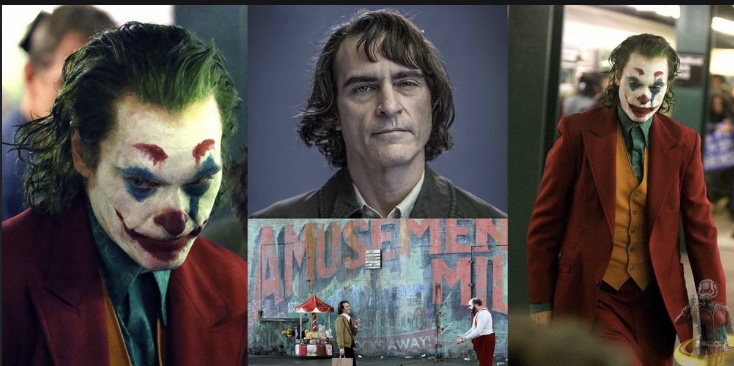Joker shines a light on mental illness
By Flickr-AntMan3001 | CC BY 2.0
Flickr-AntMan3001 | CC BY 2.0 (https://creativecommons.org/licenses/by/2.0/)
October 21, 2019
Many columnists and news outlets have criticized Todd Phillips’ new film, Joker, as being a defensive flick of “white nationalism” and many have accused the film of inspiring gun violence and potential copy-cat killers, but I believe that the movie tells a different, more somber story to the average American movie-goer.
Joker, starring Joaquin Phoenix as Arthur Fleck, depicts an aspiring comedian’s descent into madness as they he is shroudedin the arms crippling loneliness and depressing.
The film is an origin story for the famous arch nemesis of Batman. Joker focuses on Fleck’s slow and steady decline into madness through various, often difficult to watch, external circumstances that cumulates with an array of murders and violent acts against those Fleck perceives as having wronged him.
What’s important to take away from this film is the reality that many less-fortunate Americans actually do slip through the cracks of social reform and into obscurity. “Out-of-sight, out-of-mind” is the conscious of the general populace for Fleck and his mother as they try desperately to get ahead in life and seek the help and comfort of anyone that will listen… no one does.
The media made a point to outline the gun violence depicted in the film and how that could correlate to real world violence, but nothing has come in the way of gun violence in direct relation to Joker. The film, instead, leaves us feeling sorry for Fleck as he strives to rise above the unfortunate circumstances of his upbringing.
Over 2.2 million Americans suffer from schizophrenia and over 16 million Americans suffer from depression, both of which play catalyst to Fleck’s ultimate breakdown.



joker1230 • Feb 1, 2022 at 1:30 am
I have already read this article. Very interesting. Thank you for sharing this informative information. I am waiting for your further information.
joker
joker1230 • Feb 1, 2022 at 1:24 am
Gentlemen! Good post. I really like computer science. This is what I am looking for, I would suggest you continue to share such information. Thank you very much.
joker